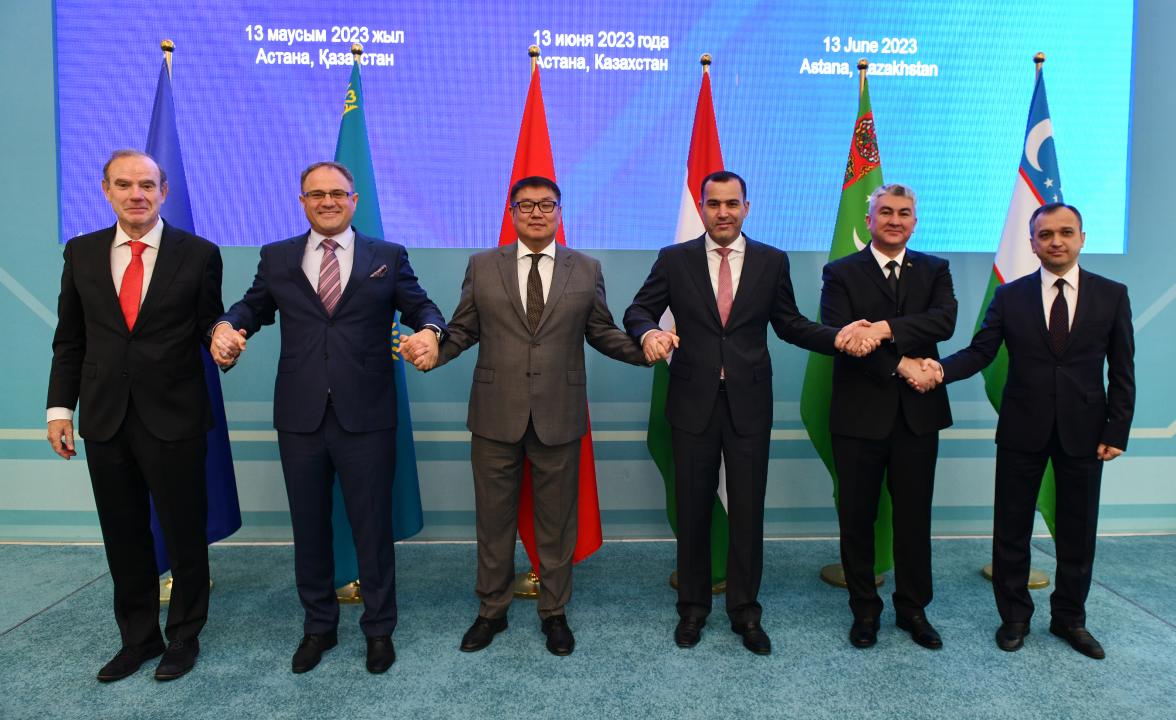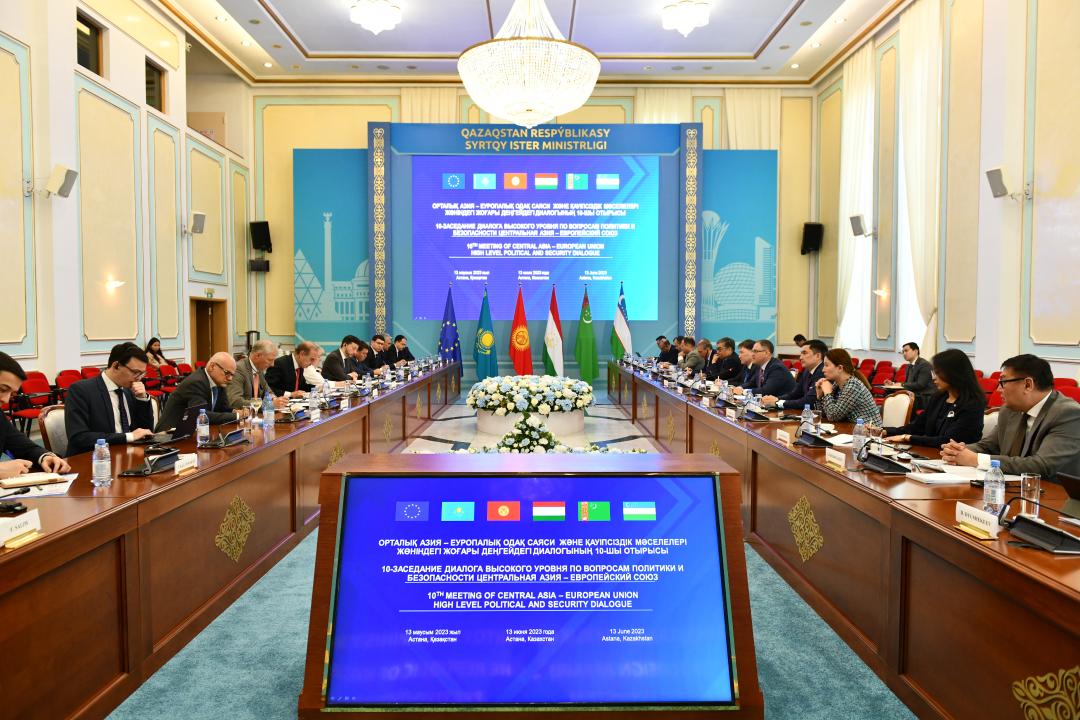ASTANA – Central Asian and European Union officials reaffirmed their willingness to deepen interregional cooperation during the tenth anniversary meeting of the Central Asia-EU High Level Political and Security Dialogue on June 13, reported the Kazakh Foreign Ministry.

Meeting participants outlined key areas of CA-EU cooperation. Photo credit: Foreign Ministry.
Deputy foreign ministers from Kazakhstan, the Kyrgyz Republic, Tajikistan and Uzbekistan, Turkmenistan’s ambassador in Astana attended the event while Enrique Mora, Deputy Secretary General of the European External Action Service led the EU delegation.
The sides addressed the opportunities for expanding cooperation between Central Asian countries and the EU to ensure water security and combat illegal migration and religious extremism in the region among other issues. The counterparts also discussed interaction regarding the situation in Afghanistan two years after the return of the Taliban to power and the pressing issues on the international agenda.
Kazakh Deputy Foreign Minister Roman Vassilenko noted that Kazakhstan, Central Asia in general and the EU are now approaching a new stage in their relations.

Photo credit: Foreign Ministry.
“We are confident that in the near future our interregional cooperation in trade, economic and investment spheres, in areas of transport and logistics, in countering common security challenges will become even stronger, while our political dialogue will expand and deepen,” Vassilenko said.
Mora, in turn, reassured that “the EU has been and remains a reliable partner for Central Asia.”
The Kazakh diplomat highlighted the significant increase in regional cooperation, including under the EU strategy on Central Asia. The EU has invested nearly 105 billion euros ($113.8 billion) in Central Asia over the past ten years, while trade between Central Asia and the EU increased by 61% and reached $49 billion in 2022. At that, the trade turnover between Kazakhstan and the EU alone totaled $40 billion.
Vassilenko noted Kazakhstan’s efforts to promote cooperation in the region and outlined specific initiatives aimed at enhancing the investment and energy partnership between the countries of Central Asia and the EU. He identified the spheres of rare earth metals, digitalization, ecology and green transition as promising areas for collaboration.
Commenting on transport and logistics, Vassilenko welcomed the recently published key findings of the study by the European Bank for Reconstruction and Development (EBRD) on sustainable connectivity between the EU and Central Asia. He called on the participants to embrace the full potential of the so-called “Central Trans-Caspian Transport Network,” traversing through southern Kazakhstan, covering all major cities and industrial centers of Central Asia and identified by the EBRD as the “most sustainable option” for future development.
According to Vassilenko, developing infrastructure, harmonizing transport standards and lifting barriers in this area will bring economic benefits and strengthen the entire range of cooperation between the countries of the region and the EU.
Addressing the situation in Afghanistan, the sides discussed the outcomes of the recent meeting of EU and Central Asia Special Representatives and Special Envoys for Afghanistan in Ashgabat, Turkmenistan, and the United Nations conference in Doha, Qatar.
“Kazakhstan is committed to continuing the provision of humanitarian assistance to the Afghan people and developing trade and economic cooperation with Afghanistan, which positively impacts the strengthening of security in that country,” Vassilenko said.
Kazakh universities are currently implementing an EU-funded and UN-administered educational program for Afghan women.
During the meeting, the participants outlined key areas for cooperation and preparations ahead of the Central Asia – EU Ministerial Meeting this autumn and a full-fledged CA-EU summit in 2024.

